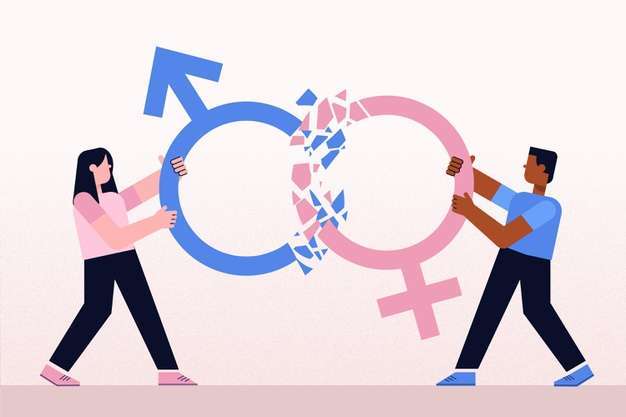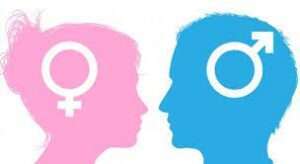
Why is gender important in literature?
Gender plays a crucial role in literature as it helps us understand how society views the roles, limitations, and expectations of men and women. Gender in literature can contribute to addressing complex and vital societal issues, promoting equality and breaking stereotypes. For example, women writers have historically used literature as a means of subverting social norms and advocating for change.
Should literature be gendered?
While gendered literature may be appealing to certain audiences and may reflect the reality of socially constructed gender roles, it also reinforces gender stereotypes and biases. It is important to recognize the diversity of human experience rather than limiting it to one specific gender. Therefore, literature should break down barriers and not further strengthen them.
Does gender affect literacy?
Studies have shown that the gender of a person can have an effect on their literacy levels. This difference, however, is not based on a biological determination; rather it is a result of gender-based influences like socialization, education opportunities or violence. Gender stereotypes and biases could, explicitly or implicitly, affect how students perceive their performance or the number of books they read, which could affect a student’s literacy levels.
What is the purpose of gender criticism in literature?
Gender criticism in literature aims to evaluate and analyze the ways in which gender, sex, and sexuality shape a literary text. It seeks to expose gender-based perspectives and biases, examine portrayals of gender stereotypes, assess the autonomy of female characters and acknowledge the gap between the gender representations, and stereotypes of cultures, societies, and historical periods.
What does it mean to gender literature?
Gendering literature means that the author, the protagonist, the antagonist, or the literary themes are designed explicitly and exclusively for a specific gender, either male or female. For instance, society associates certain qualities with masculinity, such as physical strength, competitiveness, and aggression, while qualities such as empathy, sensitivity, and nurturing are associated with femininity. Therefore, literature that focuses on male characters might explore themes such as war, power, and conquest, while female-centric literature might explore themes like love, relationships and domestic life.
Pros of Gendered Literature
-
Representation and relatability
Gendered literature can provide representation and recognition to people from different sexes. Readers can relate more to characters who share their gender, cultural background, or life experiences. They can identify and understand the struggles, emotions, and desires of the characters, which can help them gain a better understanding of their own emotions and experiences.
-
Empowering
Gendered literature can play a crucial role in empowering marginalized and underrepresented groups. Protagonists from underprivileged backgrounds or women facing discrimination can read the stories and realize that they are not alone in their struggles. These stories can serve as role models that can inspire readers, especially young readers, to overcome barriers and achieve their goals despite the challenges.
-
Economic benefits
Gendered literature can also bring economic benefits to the publishers and authors, as individuals often seek out literature that caters to their interests and preferences. This, in turn, creates a market for gender-specific literature, driving sales and revenue.
Cons of Gendered Literature
-
Stereotyping and Limitations
Gendered literature perpetuates gender stereotypes and limitations, constraining the scope and potential of literature. Gendered literature can perpetuate negative preconceptions, such as women being overly emotional, and men being aggressive and dominant. Such literature may send the message that certain qualities or personality traits are exclusively the domain of a particular gender, and this can lead to gender-based discrimination and prejudice.
-
Exclusion and Division
Gendered literature can lead to exclusion and division, narrowing the focus of literature only to the experience of certain genders. This can create an artificial rift between readers and lead to an oversimplification and underrepresentation of diverse perspectives.
-
Bias and Misrepresentation
Gendered literature can also promote bias and misrepresentation. Literature that focuses on just one gender can perpetuate a limited or biased view of the world. Furthermore, gendered literature is often written by only one gender, leading to a lack of diverse perspectives and the possibility of sharing inaccurate, insensitive or offensive portrayals of certain genders.
What is the criticism of gender?
The criticism of doing gender is that it reinforces traditional gender roles and stereotypes that buries gender objectification and restraints. Social actors have a choice to act out of a cultural norm, but doing so can curse them into continuing to fuel those cultural values, which can form biases and unfair characterization. Those who support doing gender claim that they act freely and intentionally, but in many cases, this does not need to be the case.
How does feminism affect literature?
Feminism has played an important role in shaping the literary world, as it has brought to light the experiences and perspectives of women writers and characters. Feminist literary criticism promotes examining texts outside the traditions of a male-dominated literary canon, examining the representation of female characters, and examining the structure and rhetoric used to compose literature. Feminism in literature aims not only to empower women but also evaluate literature’s history and portrayal of gender dynamics while promoting gender equality.
Conclusion
In conclusion, the topic of gendering literature is a complex and multifaceted issue that calls for careful consideration. While gender-specific literature can provide representation and a sense of empowerment, it carries the risk of promoting stereotypes and perpetuating biases. It is essential to recognize the benefits and limitations of gendered literature and strive towards creating a more inclusive and diverse literary landscape that celebrates and reflects the complexity and richness of our experiences. We hope you enjoyed the blog post of languages Unlimited about “Do you think literature should be gendered”. It is critical for authors to produce literature outside the gender-restricted zones to envision new possibilities, stories, and imaginative constructs. Nonetheless, it is up to the readers to decide what literature they want to engage in, depending on their interests and the need to diversify their understanding of the world.


